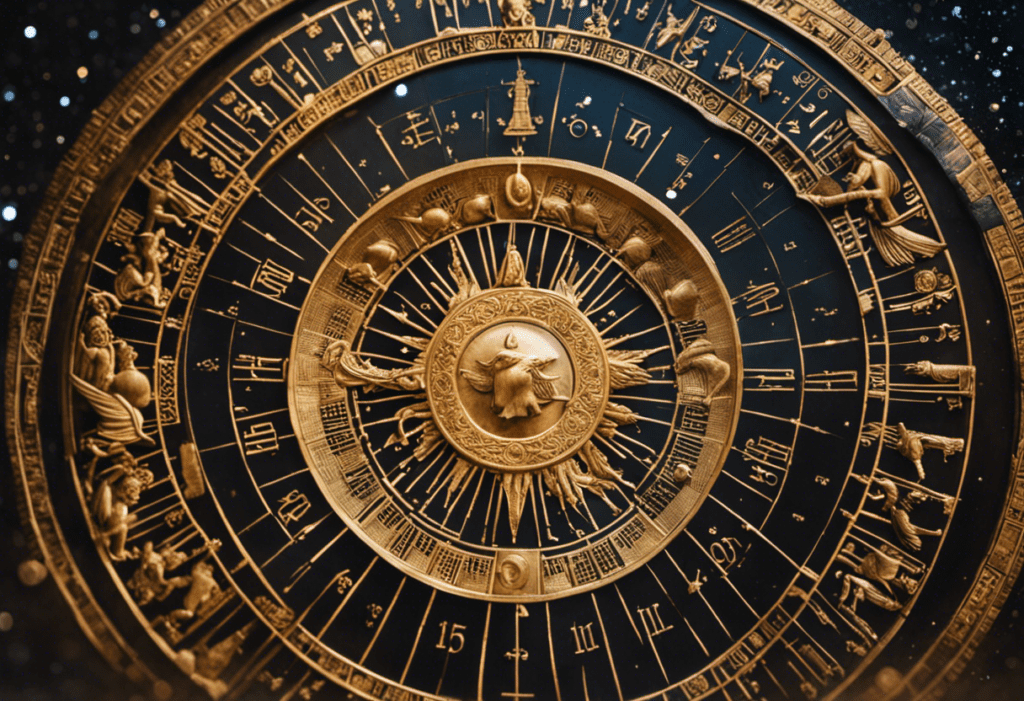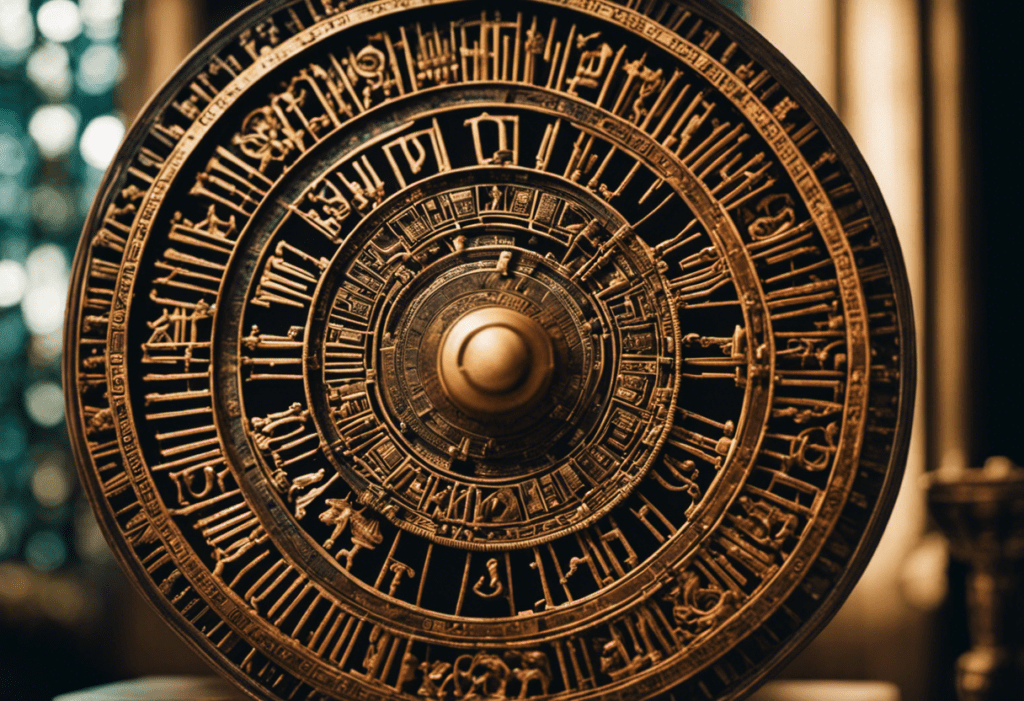In the tapestry of time, the ancient Babylonian civilization wove a rich fabric of mythology and spirituality. Like celestial threads, their deities guided the passage of months, infusing each with unique symbolism and purpose.
This article delves into the intricate tapestry of the Babylonian calendar, exploring the profound influence of their gods and goddesses on the rhythm of time. Through an objective and scholarly lens, we unravel the threads connecting ancient rituals to modern implications, revealing the enduring legacy of Babylonian culture.
Key Takeaways
- Babylonian mythology shaped ancient astronomy practices.
- Deities were associated with specific months of the calendar.
- Deity-month associations provided a framework for religious rituals and celebrations.
- The Babylonian calendar continues to have significant modern implications in various aspects of society.
The Babylonian Pantheon: Exploring the Gods and Goddesses Associated With the Months
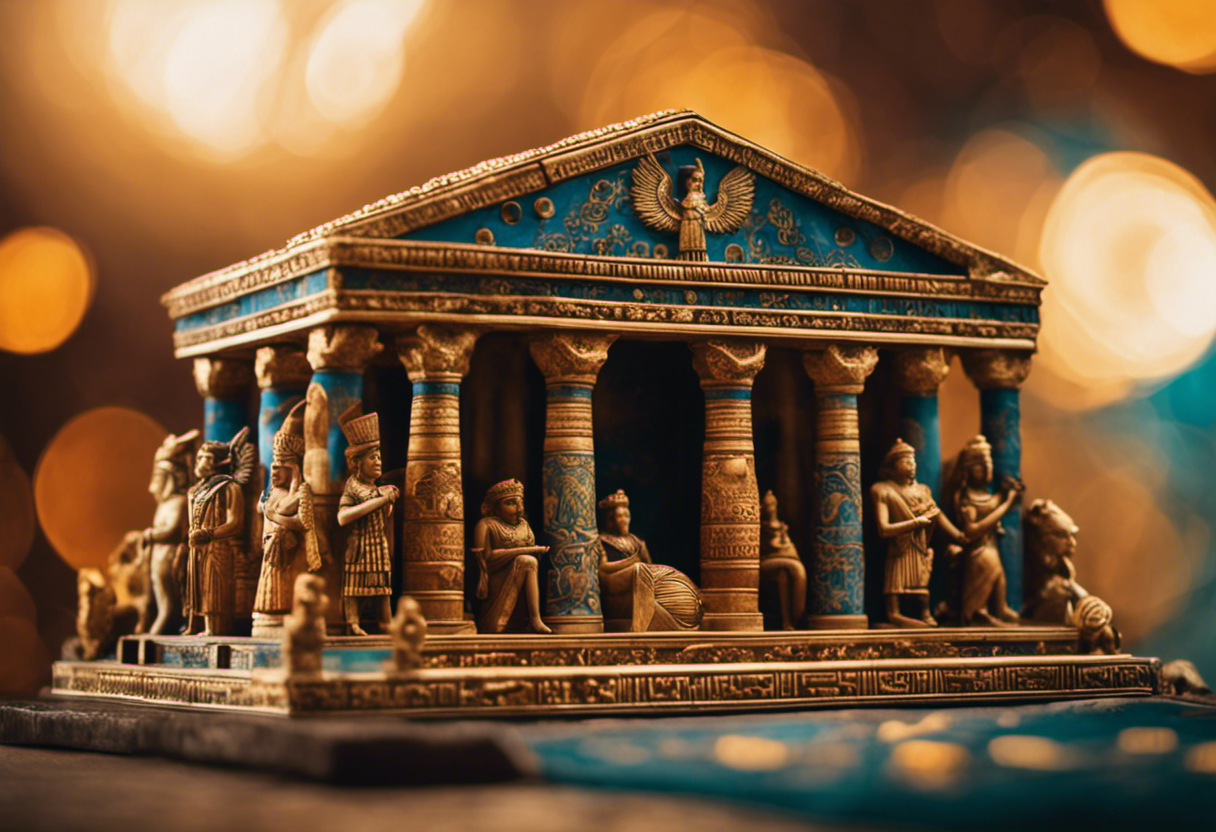

The article explores the significance of the Babylonian gods and goddesses in relation to the months of the calendar. In Babylonian astrology, the deities played a crucial role in shaping the ancient astronomy practices. The impact of Babylonian mythology on ancient astronomy cannot be overstated, as it formed the foundation for understanding celestial movements and their connection to human affairs.
The Babylonian pantheon consisted of numerous gods and goddesses, each associated with different aspects of life and natural phenomena. These deities were assigned to specific months of the calendar, reflecting the Babylonians’ belief in the influence of the gods on the passage of time. For example, the month of Nisan was associated with the god Marduk, the supreme deity of Babylon, symbolizing the beginning of the agricultural year. Similarly, the month of Tishri was associated with the goddess Ishtar, representing the harvest season.
The Babylonian deities also had a significant impact on astrology. The priests and astronomers of ancient Babylon believed that the movements of celestial bodies were connected to the gods’ will. They observed the positions of the planets, stars, and constellations to interpret the gods’ messages and predict future events. This connection between the gods and the celestial bodies led to the development of sophisticated astronomical techniques, such as the zodiac, which divided the sky into twelve equal parts, each associated with a specific deity.
Origins of the Calendar: Tracing the Ancient Babylonian Influence
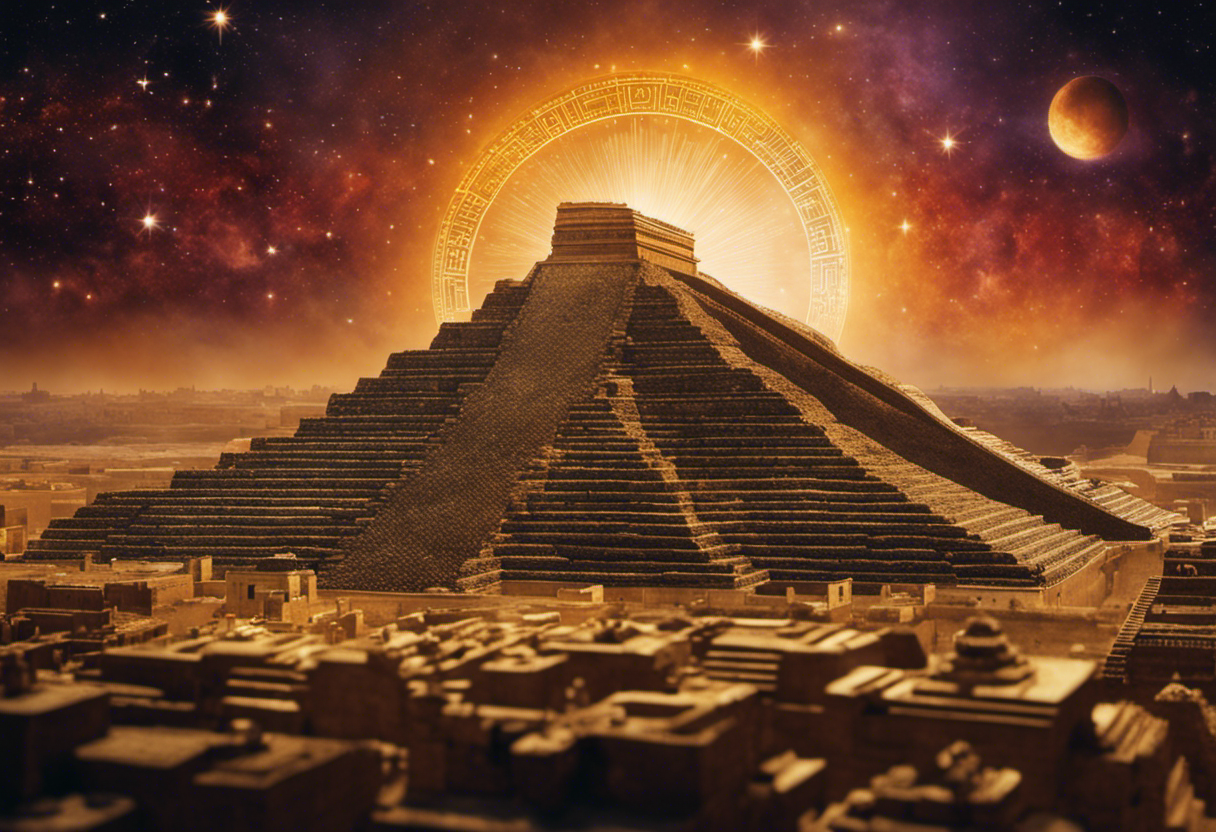

Tracing the ancient Babylonian influence allows for a comprehensive understanding of the calendar’s origins and its evolution throughout different civilizations. The Babylonians, known for their advanced mathematical and astronomical knowledge, had a significant impact on the development of calendars in ancient Mesopotamia and beyond.
The Babylonians utilized a lunar calendar, which consisted of 12 lunar months, each with 29 or 30 days. This lunar calendar was closely tied to their religious beliefs, with the months being named after various deities. For example, the month of Nisanu was named after the god Nisaba, the goddess of writing and knowledge.
These Babylonian names for the months were later adopted by other cultures, such as the Assyrians, Persians, and Hebrews. The influence of Babylonian deities on the calendar months can still be seen today, as many of these names are still in use.
Furthermore, the Babylonians also developed a system of intercalation to align their lunar calendar with the solar year, a practice that was later adopted by other civilizations. This intercalation ensured that their religious festivals and agricultural activities remained in sync with the seasons.
Significance of the Deity-Month Associations in Babylonian Culture
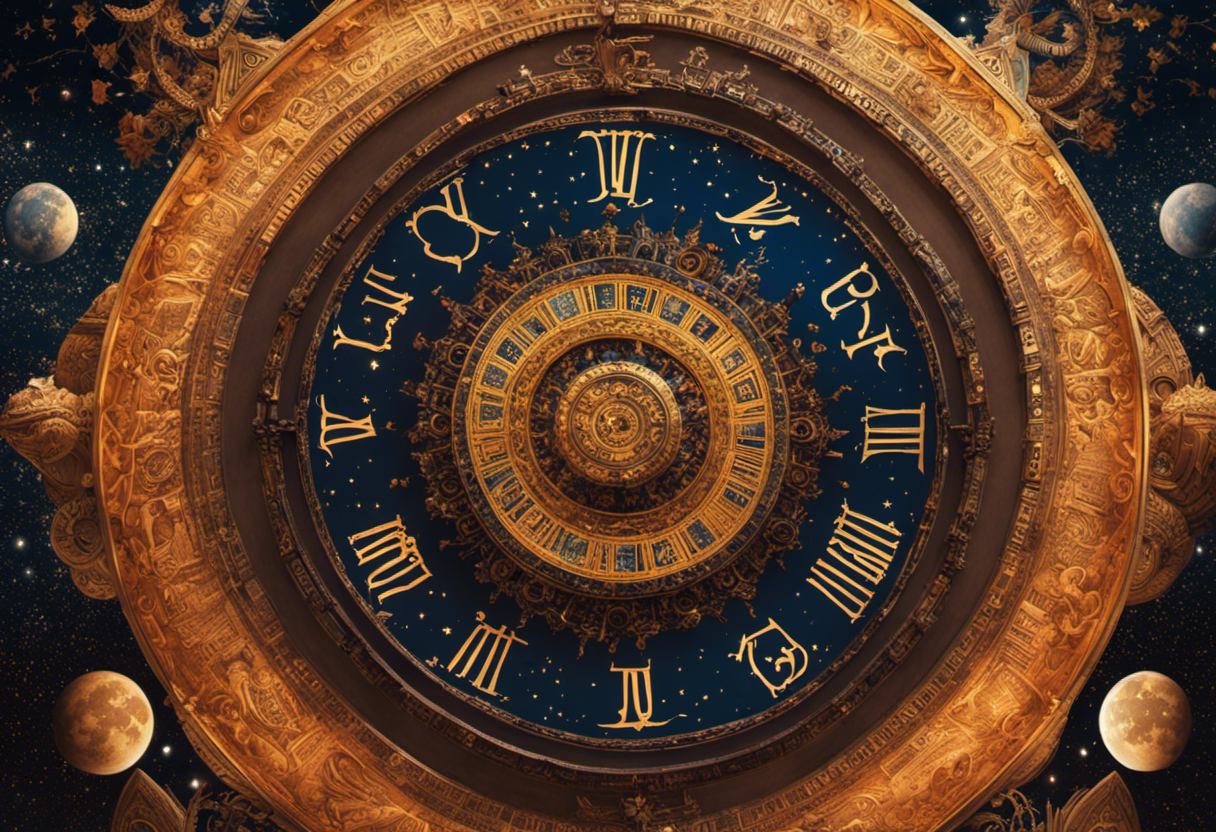

An understanding of the deity-month associations in Babylonian culture provides valuable insights into the religious and cultural significance attached to each lunar month. The Babylonians, like many ancient civilizations, recognized the importance of lunar cycles in their daily lives. They believed that the movements of the moon were linked to the actions and influences of their gods and goddesses. As a result, they assigned specific deities to each month of their calendar.
The cultural significance of these deity-month associations was multifaceted. Firstly, it provided a framework for religious rituals and celebrations throughout the year. Each deity was associated with certain qualities and attributes, and worshipers would seek their favor during their respective months. This helped to establish a sense of order and structure within the religious practices of the Babylonians.
Furthermore, the deity-month associations also reflected the Babylonians’ understanding of the natural world and its connection to the divine. By associating specific deities with certain months, they recognized the cyclical nature of the lunar calendar and its influence on various aspects of their lives, such as agriculture, hunting, and fertility. This deepened their reverence for the gods and their belief in their ability to affect the world around them.
Unveiling the Rituals and Festivals Dedicated to Babylonian Deities
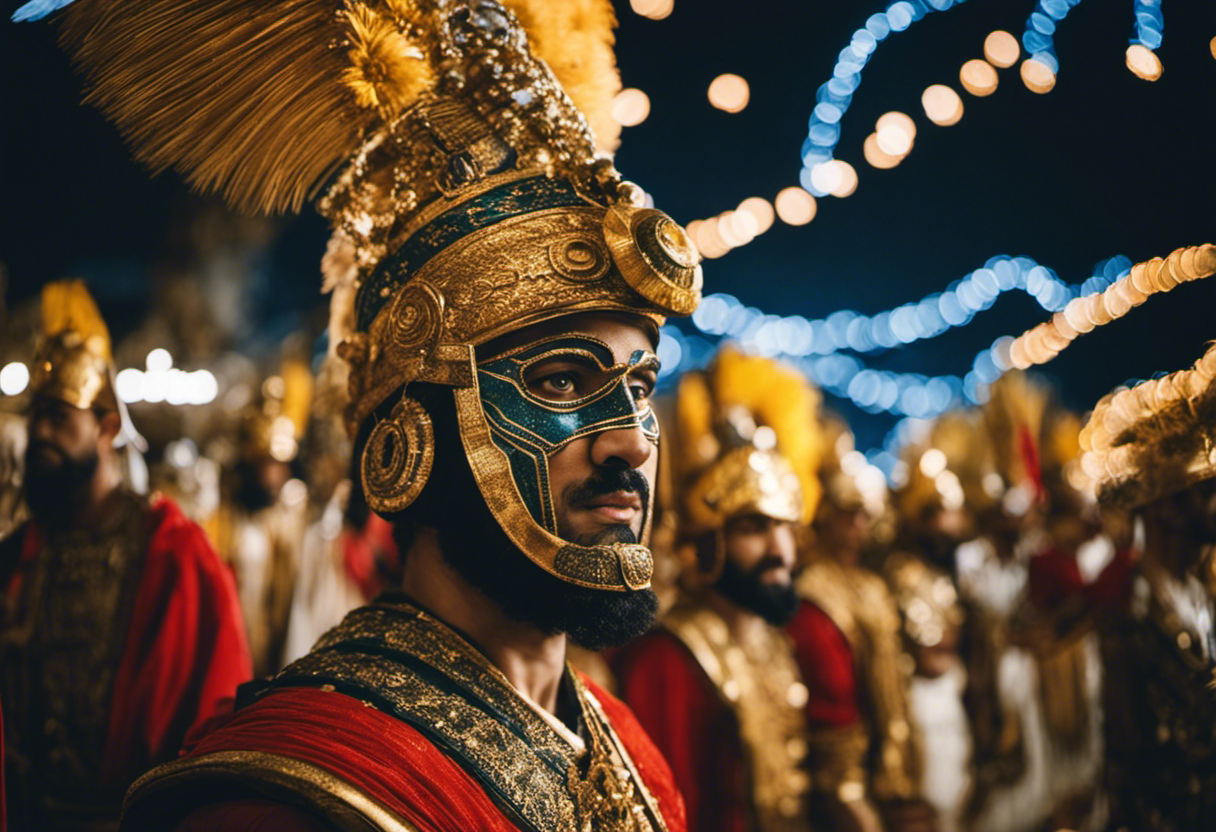

Interestingly, the rituals and festivals dedicated to Babylonian deities showcase the rich cultural heritage and religious practices of this ancient civilization. The Babylonians were known for their elaborate and intricate religious ceremonies, which played a significant role in their society. These festivals were held throughout the year and were closely tied to the agricultural calendar and the changing seasons.
One of the most important festivals was the Akitu, which marked the beginning of the Babylonian New Year. This festival lasted for 11 days and involved various religious ceremonies, processions, and offerings to the gods.
Another significant festival was the Zagmuk, which celebrated the victory of the Babylonian god Marduk over the forces of chaos. This festival included a reenactment of the battle between Marduk and the chaos monster, with the people of Babylon participating in the festivities.
In addition to these major festivals, there were numerous other smaller rituals and celebrations dedicated to specific deities. For example, the Ishtar Gate festival honored the goddess Ishtar, while the Bel-Marduk festival celebrated the god Marduk. These festivals were marked by prayers, sacrifices, music, dancing, and feasting.
Overall, the Babylonian deity festivals and ancient rituals provide valuable insights into the religious beliefs and practices of this ancient civilization. They demonstrate the importance of gods and goddesses in Babylonian society and highlight the deep connection between religion, culture, and daily life.
Modern Implications: How the Babylonian Calendar Still Resonates Today


Despite its ancient origins, the Babylonian calendar continues to have significant modern implications in various aspects of society.
One of the most prevalent influences of the Babylonian calendar in contemporary times is seen in cultural celebrations and festivities. Many cultures around the world still observe traditional holidays and religious festivals that are rooted in the Babylonian calendar system. For example, the celebration of the New Year in numerous cultures, such as the Iranian, Kurdish, and Zoroastrian communities, is directly linked to the Babylonian New Year festival called Akitu. This demonstrates how the Babylonian calendar has transcended time and continues to shape cultural practices today.
Additionally, the Babylonian calendar’s astrological connections have had a lasting impact. The division of the year into twelve months, each associated with a specific zodiac sign, has influenced astrology and horoscope traditions that are followed by millions of individuals worldwide. Furthermore, the Babylonian calendar’s association with celestial bodies and astronomical events has also played a crucial role in fields such as astronomy and astrology. Scholars and researchers still study Babylonian astronomical texts to gain insights into ancient celestial observations and to understand the relationship between the Babylonian calendar and celestial phenomena.
Conclusion
In conclusion, the influence of Babylonian deities on calendar months is a fascinating aspect of ancient Babylonian culture. The association of specific gods and goddesses with each month served as a way to honor and pay homage to these deities.
This practice continues to resonate today, as the Babylonian calendar remains the foundation for our modern calendar system. It is intriguing to note that over 4,000 years later, we still rely on the same calendar structure established by the Babylonians, showcasing the enduring impact of their religious beliefs and traditions.

